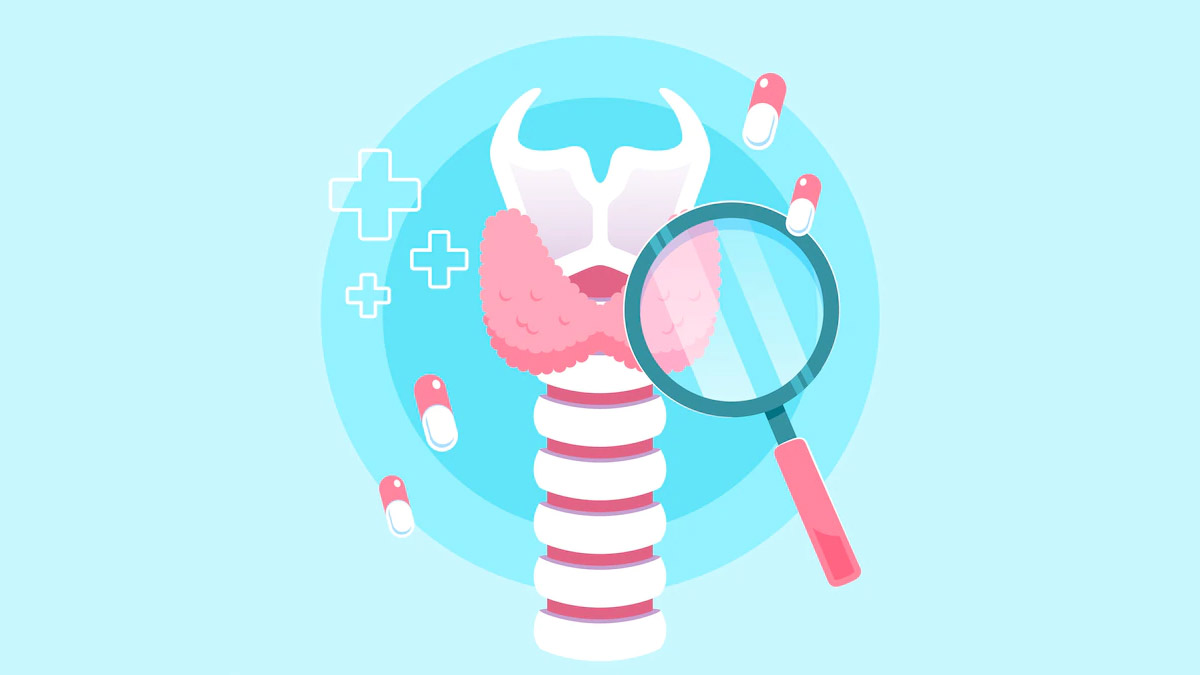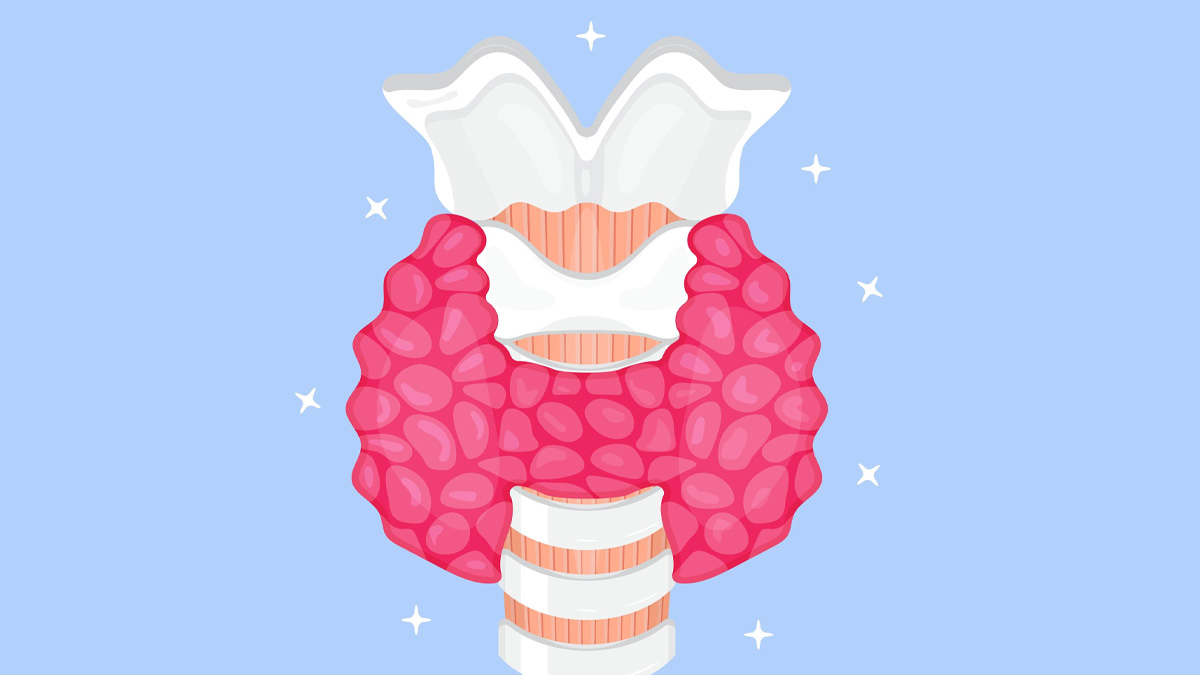
Rheumatoid arthritis (RA) and autoimmune thyroid disease (AITD), which encompasses conditions like Hashimoto’s thyroiditis and Graves’ disease, represent two distinct spectrums of autoimmune disorders. RA is a chronic systemic inflammation affecting primarily the peripheral small joints, whereas AITD targets the thyroid gland, leading to either an underactive (hypothyroidism) or overactive (hyperthyroidism) thyroid condition. This expanded discussion delves into the intricate relationship between RA and thyroid dysfunction, emphasising the importance of vigilant screening and integrated management approaches for individuals diagnosed with RA.
Table of Content:-
Understanding Autoimmune Diseases: RA and AITD
“Autoimmune diseases arise when the immune system mistakenly attacks the body's tissues. While RA is non-organ specific and systemic, targeting joints predominantly, AITD is organ-specific, affecting the thyroid gland. Despite these differences, a common thread of autoimmunity binds them, suggesting overlapping etiological pathways,” said Dr Swapnil Keny, Consultant-Orthopaedics, Fortis Hospital.

Also read: Should You Stop Exercising If You Have Autoimmune Disease?
Thyroid Dysfunction: A Closer Look
Thyroid dysfunction manifests in two primary forms: hypothyroidism and hyperthyroidism. Hypothyroidism, characterised by the thyroid's inability to produce sufficient hormones, leads to symptoms such as weight gain, joint pain, lethargy, and depression. Conversely, hyperthyroidism results from excess thyroid hormone production, causing weight loss, palpitations, and anxiety.
“The commonest reason for both hypothyroidism and hyperthyroidism is autoimmunity against thyroid gland. Autoimmune diseases are known to exist in clusters. Individuals who have one autoimmune condition are more likely to develop other autoimmune disorders compared to the general population. The common etiological factor of autoimmunity is the main core of the relationship between RA and thyroid dysfunction. Patients with RA commonly exhibit clinical features of other autoimmune conditions including AITD,” said Dr Keny.
“The factors responsible for the development of autoimmunity can be due to genetic predisposition or environmental factors such as infectious agents, drugs, vaccines, smoking, etc. It is reasonable to assume that thyroid abnormalities share a common etiological pathway with RA. Also, the incidence of hypothyroidism is quite high in patients with RA as compared to thyroid dysfunction. As untreated thyroid disease can itself present with musculoskeletal pains, it may become difficult to assess the response to treatment of rheumatoid arthritis,” Dr Keny added.
The Autoimmune Link Between RA and Thyroid Dysfunction
Autoimmune diseases tend to cluster, with individuals diagnosed with one such condition being at a higher risk of developing another. This phenomenon is notably observed in the co-occurrence of RA and AITD. The shared autoimmune basis underscores the significance of routine thyroid function testing in RA patients, particularly given that the symptoms of thyroid dysfunction can mirror or exacerbate those of RA.
The Impact of Thyroid Dysfunction on RA
Thyroid dysfunction can complicate the clinical picture of RA. Hypothyroidism's joint pains and lethargy can mask or intensify RA symptoms, complicating treatment and management. Moreover, the prevalence of hypothyroidism is notably higher among individuals with RA, necessitating a proactive approach to thyroid screening in this population.

The Role of Environmental and Genetic factors
Both RA and AITD can be triggered by a combination of genetic predispositions and environmental factors, including infections, certain medications, and lifestyle choices such as smoking. Understanding these triggers is crucial for managing and potentially mitigating the risk of developing these conditions.
Screening and Management of Thyroid Dysfunction in RA
Given the intertwined nature of RA and thyroid dysfunction, early detection and treatment of thyroid abnormalities in RA patients are critical. Routine biochemical tests for thyroid function are recommended, particularly for younger patients. This proactive approach not only facilitates early intervention but also informs the choice of RA treatments to avoid exacerbating underlying thyroid conditions.
Drug Interactions and Treatment Considerations
“Certain medications used in RA treatment, such as glucocorticoids and leflunomide, may affect thyroid function. Conversely, tumour necrosis factor inhibitors have been shown to improve thyroid function in patients with hypothyroidism. This complex interplay highlights the importance of careful drug selection and monitoring in patients with co-existing RA and thyroid dysfunction,” said Dr Sweta Budyal, Senior Consultant Endocrinologist & Diabetologist, Fortis Hospital, Mulund.
“Routine biochemical testing of thyroid diseases in RA patients is indicated, especially at a younger age. This will not only enable early detection and treatment but also help in rational drug use as many therapeutic drugs for RA can potentially aggravate the thyroid disease. Glucocorticoids and leflunomide can interfere with thyroid function,” said Dr Budyal.
“On the other hand, tumour necrosis factor inhibitors can improve thyroid function in RA patients with hypothyroidism. The principles of treatment for both hyperthyroidism and hypothyroidism in patients with RA are the same as those in patients without RA. Treatment of RA with immunomodulatory drugs may actually make it easier to get thyroid under control quickly,” Dr Budyal added. Hence, RA patients should be screened for thyroid function and refer to endocrinologists to determine effective strategies for preventing and treating thyroid dysfunction.
Also watch this video
How we keep this article up to date:
We work with experts and keep a close eye on the latest in health and wellness. Whenever there is a new research or helpful information, we update our articles with accurate and useful advice.
Current Version
